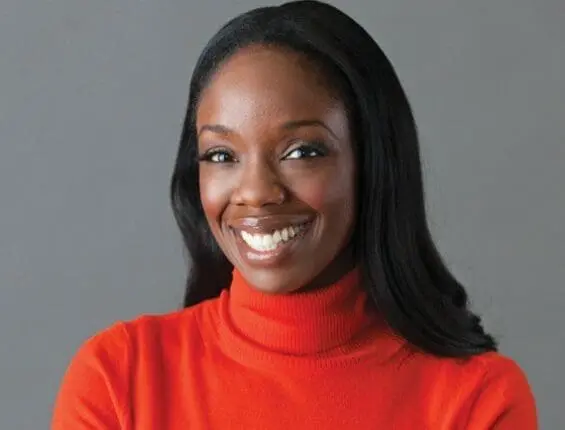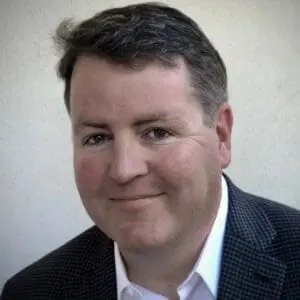No therapist is surprised that childhood trauma affects emotional and behavioral development, but it’s taken a passionate young doctor to shed light on the disturbing toll it also takes on physical health.
Years ago, after Nadine Burke Harris opened a pediatric clinic for the underserved population of San Francisco, she grew concerned that conventional medical treatments weren’t helping in most cases of autoimmune diseases, out-of-control asthma, and failure to thrive. She had a eureka moment when she discovered research about the collection of adverse childhood experiences (ACEs) that have been tied to adult alcoholism, drug abuse, physical abuse, and suicidality.
Her patients were too young to be exhibiting the fallout of ACEs that plague adults, but Burke had a hunch that the children’s physical suffering might be tied to elevated stress levels related to adversity and trauma. In the silo of medical school, she’d never learned how to counter the effects of such trauma, but she decided to evaluate her young patients using the ACEs questionnaire just the same.
Her hunch was right: the kids with the most stubborn physical ailments were coping with all kinds of traumas. So Harris altered the way she doctored, adding ACEs assessments to her intakes and bringing on therapists who could offer intensive family therapy right there at her clinic. The results were profound, and she’s since undertaken a campaign to unite doctors and therapists around an understanding of ACEs and the vital importance of treating the whole person.
Now an in-demand speaker, Burke Harris is the founder and CEO of the Center for Youth Wellness. Her TED talk, about how childhood trauma affects health across a lifetime, has been viewed more than 5 million times, and has laid the groundwork for her first book, The Deepest Well. In January, she became California’s first surgeon general.
RH: Your first experiences treating the underserved kids in your office transformed your ideas about what the standard medical approaches were missing. What did you learn from those experiences?
Burke Harris: When I finished my medical training at Stanford, I didn’t think that I was going to do anything other than provide standard pediatric care to the vulnerable community I wanted to serve. But I soon found that patients who had behavioral and learning issues also had crazy high rates of asthma, rashes, and autoimmune diseases. And it soon became apparent to me that the common element in all these cases was a pattern of exposure to high doses of adversity.
RH: You’ve also noticed that while attention was often focused on the symptoms of ADHD, the impact of trauma on children was often ignored. What led you to that conclusion?
Burke Harris: The diagnostic criteria for ADHD are almost all there in the kids I treated. But the DSM stipulates that ADHD is not caused by any other mental health disorder. Meanwhile, my research on how adversity affects children’s developing brains led me to realize that a diagnosis of ADHD didn’t take the full picture into account. Something else was going on.
A lot of my young patients had started on Ritalin, and when the original prescribing doctors had realized that stimulants weren’t working, they’d prescribed antipsychotic medications. By the time these children arrived at my clinic, they’d had five different diagnoses with three different medications! It became obvious to me that if you have a child whose brain and body were being bathed in stress hormones every day, no amount of Ritalin or Adderall or Concerta was going to fix the problem. You have to get to the root of the problem—the everyday adversity these kids face in their lives.
RH: How did the ACEs research change your outlook?
Burke Harris: One of the most striking conclusions of the ACE studies was how drastically certain early experiences increase the risks of cardiovascular disease, cancer, and lung disease. That was key to my understanding of how strongly emotional stress is linked to the body, particularly during the critical developmental period in children. But there’s another piece that largely goes unrecognized: the biological changes that result in the activation of stress responses lead not only to the increased risk of medical problems, but to a dramatic increase in the risk of engaging in high-risk behavior.
So it’s not as simple as just saying that high-risk behavior is the cause of worse health. You also have to take into account the neurobiology that underlies the connection between early adversity and increased risk behavior. In fact, there was a clear dose–response relationship. In other words, a person with four or more ACEs is 10 times as likely to use IV drugs as a person who had none. Some of that has to do with behavioral exposures and the environment they’re in, but some of it has to do with how changes in the brain, particularly the reward pathways, increase the risk of substance dependence.
RH: Attachment theory has had a huge impact on the therapy world. How has it influenced your work?
Burke Harris: One of the things I find really fun about taking a multidisciplinary approach is that I learn so much from my mental health colleagues. So yeah, the mental health field has long recognized the critical importance of attachment in healthy development. And now my colleagues on the biomedical research side are starting to catch up and look at things like how safe, stable, nurturing relationships and environments can actually change the structure and functioning of children’s brains. It’s no longer just a theory. You can actually see measurable differences on MRIs between healthy kids and those with psychological and medical issues.
RH: In your clinic, everybody is assessed for ACEs. But when someone has a higher ACEs score, what do you actually do?
Burke Harris: Number one, we help the patient and the family understand what we think is going on, and we connect that to an explanation of our treatment approach. In The Deepest Well, I give the example of Lyla, the little girl who wasn’t growing and whom I diagnosed with failure to thrive. Her previous pediatrician had defined the problem as just a nutritional issue and had been prescribing nutritional supplementation. But when I saw the same growth charts and examined her, I assessed her ACEs, discovered domestic violence and other issues, and found her to have an elevated ACE score.
As a result, I was able to say to Lyla’s mom, “Because of what Lyla has experienced, I think her body is making more stress hormones than it should, which is having a very bad effect on her health.” Why was this interaction important? Because by widening the mother’s understanding of her child’s health, she was able to see the connection between Lyla’s well-being and the need to get care for herself at a local domestic violence shelter or a faith-based organization.
Importantly, we also got this mom and her daughter into child–parent psychotherapy. Mind you, this child presented with no behavioral issues or emotional issues. The psychotherapy was to address the poor physical growth.
Doing this work is not about reinventing the wheel and coming up with some whole new cure for toxic stress. It’s about using the existing treatment resources in a way that’s more informed, more strategic, and far more targeted to the root causes of a child’s medical problems.
RH: So parent–child psychotherapy to address a physical problem like growth? I’m curious to know what you talked about in that session!
Burke Harris: The treating therapist worked on helping this mom understand her own history of trauma and how that might be interfering with her ability to provide a safe, stable, and nurturing environment for Lyla. He then worked to deepen and strengthen the mom’s natural sources of resilience. It turned out that she had a number of sources of strength, including close friendships and a strong community. The therapist worked hard on addressing the sources of adversity, and then doubled down on the sources of buffering, healing, and resilience. Within six months, Lyla was back on the growth curve.
RH: Do you think the medical system is improving the way it incorporates an understanding of addressing childhood trauma in its treatment approaches?
Burke Harris: More and more states, including New Jersey, Colorado, California, and North Carolina, are beginning to recognize adverse childhood experiences and toxic stress as a public health threat, and looking into how to implement statewide responses. On the research side, the Bay Area Research Consortium, our research partnership with the University of California, San Francisco, just extended a study we initiated into a longitudinal one. You’ve heard of the longitudinal Framingham Heart Study, which gave us such rich information for heart disease? We’re doing that type of study for childhood toxic stress.
RH: What do you want to say to frontline psychotherapists who see clients with adverse childhood experiences, but who may not have access to a multidisciplinary clinic like yours?
Burke Harris: Well, the therapists I talk to say, “Listen, we get the ACEs stuff. We know trauma, and we know how to treat it. But we’re not so sure about the primary care physicians. Since we’re not in the medical arena, we’re not sure how to give kids the more comprehensive treatment they need.”
And the pediatricians say, “Hey, I can do the early identification, but I’m not a therapist and don’t have the skills to address all of a patient’s issues.” I also talk to teachers, who say, “I think we should be screening for ACEs in our school. But I’m not sure what to do from there.”
My response across the board is that not everyone needs to be doing everything. But together, we have everything we need to respond to this public health crisis. It’s all about coordinating care.
Ultimately, I’d tell therapists, play your position: do the thing you’re uniquely able to do. And then it’s about working smarter, instead of working harder, to coordinate with others so that we can provide a full network of services to kids and families.
Organizations like ACEs Connection join people doing this work with others in their neighborhood or community or field. The National Pediatric Practice Community on ACEs is partly a digital network that helps primary care clinicians understand how to start screening in their communities and what tools and resources they need to set this up in their practice.
RH: It seems like advocating for the underserved and shining a light on the impact of childhood adversity has become your mission. Is this the life you envisioned coming out of medical school?
Burke Harris: Back in medical school, I was the codirector of a free clinic for uninsured folks, and spent my Saturdays providing free care. I found it deeply fulfilling to serve those who otherwise wouldn’t have access to high-quality care. While I’d love to make top dollar and live in a penthouse, my real goal is to earn a living doing something that has integrity and aligns with who I am. For me, that’s the only path to follow.
Want to earn CE hours for reading this? Take the Networker CE Quiz.
Ryan Howes
Ryan Howes, Ph.D., ABPP is a Pasadena, California-based psychologist, musician, and author of the “Mental Health Journal for Men.” Learn more at ryanhowes.net.













